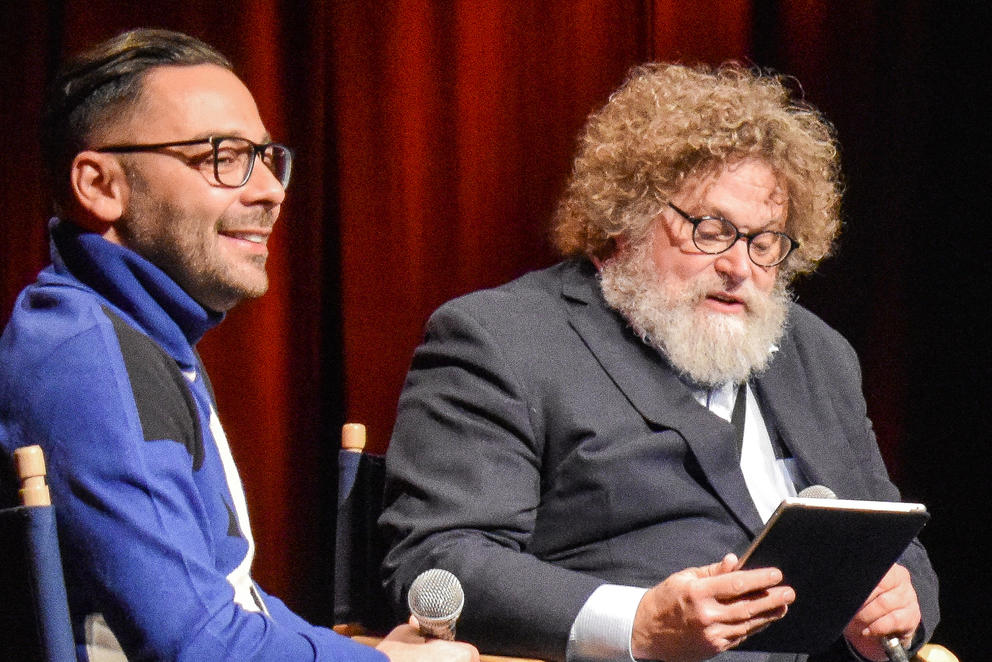Podcast | The case for fixing philanthropy and decolonizing wealth
Edgar Villanueva tells us how doing good can actually do harm.

Crosscut editor-at-large Knute Berger, right, considers a question for Edgar Villanueva submitted by the audience. (James Pitts for Crosscut)
The idea of decolonization has been with us for as long as countries have laid claim to land already rich with people and an existing history. And generally it is thought of as the giving back of that land. But there is more to decolonization than mere acreage. As Edgar Villanueva argues, "decolonizing ... is about truth and reconciliation."
When it comes to philanthropy, decolonization is especially complicated. While attempting to heal communities hurt by colonization, philanthropists can actually end up doing greater harm. What is needed is a process of acknowledging the truth of American colonization and reconciling the impact of the corporate power that fuels many philanthropic efforts. For this bonus episode of the Crosscut Talks podcast, editor-at-large Knute Berger speaks with Villanueva about what it will take to do just that.
A nationally recognized expert on social justice philanthropy, Villanueva grew up in North Carolina and is an enrolled member of the Lumbee Tribe. He's also the author of Decolonizing Wealth, a book that proposes Indigenous solutions to dysfunction and inequality in philanthropy and finance. Among other roles, he serves as chair of the board of Native Americans in Philanthropy and is a board member of the Andrus Family Fund, a national foundation that works to improve outcomes for vulnerable youth.
This conversation was recorded Nov. 19 at the KCTS 9 studios in Seattle as part of the Crosscut Talks Live series.


